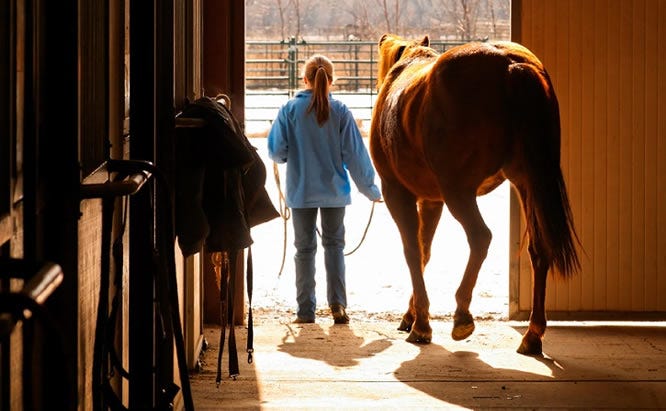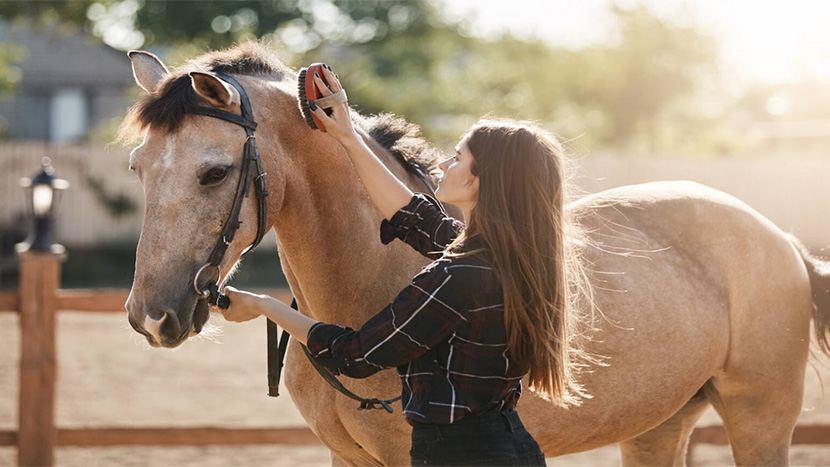Caring for senior horses involves several responsibilities, and one of the most crucial aspects is maintaining their health through effective senior horse parasite control. Parasites can pose significant threats to older horses, impacting their overall well-being and quality of life. In this article, we will delve into essential insights and strategies for managing parasites in senior horses, ensuring they remain healthy and vibrant.

Understanding the Importance of Parasite Control
As horses age, their immune systems become less robust, making them more susceptible to parasitic infections. Parasite control is vital for maintaining their health and preventing complications that could arise from these infections. Understanding the life cycle of common parasites and their impact on senior horses is the first step in effective management.
Common Parasites in Senior Horses
Several types of parasites can affect horses, but senior horses are particularly vulnerable to certain species. Common parasites include strongyles, tapeworms, and ascarids. Each of these parasites can cause a range of health issues, from weight loss to colic, making it essential to address them promptly.
Signs of Parasitic Infection
Recognizing the signs of parasitic infection early can prevent severe health complications in senior horses. Common symptoms include weight loss, a dull coat, diarrhea, and colic. Regular veterinary check-ups are crucial for early detection and treatment of these infections.
Effective Strategies for Parasite Control
Implementing a comprehensive parasite control program is vital for maintaining the health of senior horses. This includes regular deworming, pasture management, and maintaining a clean living environment. Let’s explore each of these strategies in more detail.
Deworming Protocols
Developing a deworming schedule in consultation with a veterinarian is essential. The frequency of deworming depends on factors such as the horse’s age, environment, and health status. Overuse of dewormers can lead to resistance, so it’s crucial to use them judiciously and rotate the types of dewormers used.
Pasture Management
Effective pasture management plays a significant role in controlling parasites. Regularly rotating pastures and removing manure can help reduce the parasite load in the environment. For more in-depth tips, visit our article on pasture management for old horses.
Maintaining a Clean Environment
A clean living environment is crucial for preventing parasitic infections. Regularly cleaning stalls and ensuring proper ventilation can help reduce the risk of infection. Additionally, maintaining clean water sources is essential to prevent the spread of parasites.
The Role of Nutrition in Parasite Control
Proper nutrition supports the immune system, helping horses fend off parasitic infections. A balanced diet rich in essential nutrients can strengthen a horse’s natural defenses. For hydration tips during the warmer months, refer to our article on senior horse hydration in summer.
Supplements and Herbs
Certain supplements and herbs can aid in parasite control. Ingredients like garlic and diatomaceous earth are believed to have antiparasitic properties. However, it’s essential to consult with a veterinarian before adding any supplements to your horse’s diet.
Regular Veterinary Check-Ups
Regular veterinary check-ups are vital for monitoring the health of senior horses and ensuring effective parasite control. A veterinarian can perform fecal egg counts to assess the parasite burden and tailor a specific deworming plan to your horse’s needs.
Fecal Egg Counts
Fecal egg counts provide valuable information about the types of parasites present and the severity of the infestation. This information helps veterinarians make informed decisions regarding deworming protocols and other management strategies.
Integrating Exercise and Parasite Control
Regular exercise is beneficial for senior horses, contributing to overall health and vitality. Exercise helps maintain a healthy weight, which can aid in reducing the impact of parasitic infections. For more insights on exercise routines, check out our article on how much exercise for older horses.
Monitoring Weight and Body Condition
Maintaining an optimal weight and body condition is crucial for managing parasites. Regularly monitoring your horse’s weight and adjusting their diet and exercise regimen accordingly can help reduce the risk of parasitic infections.
Conclusion
In conclusion, senior horse parasite control is an essential aspect of caring for older horses. By understanding the risks, implementing effective strategies, and working closely with a veterinarian, you can ensure your senior horse remains healthy and happy. For further guidance on caring for older horses, visit an external resource on how to take care of your older horse.

FAQ Section
What are the common signs of parasites in senior horses?
Common signs include weight loss, a dull coat, diarrhea, and colic. Regular veterinary check-ups can help in early detection.
How often should I deworm my senior horse?
The frequency depends on several factors, including the horse’s health and environment. It’s best to consult with a veterinarian to develop a tailored plan.
What role does nutrition play in parasite control?
Proper nutrition supports the immune system, helping horses fend off infections. A balanced diet is crucial for maintaining strong natural defenses.
This article contains affiliate links. We may earn a commission at no extra cost to you.
